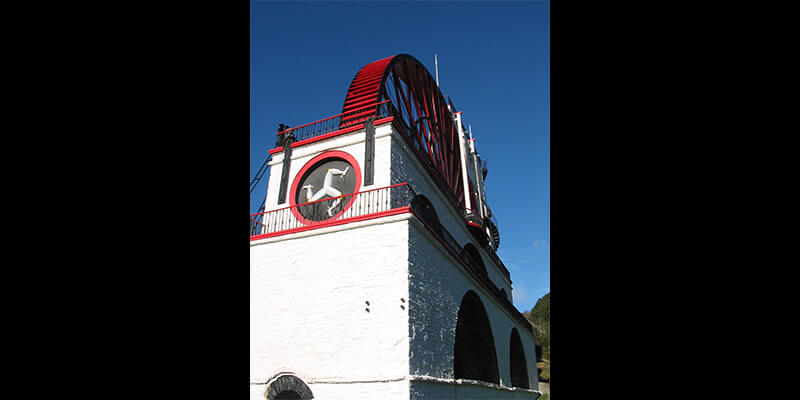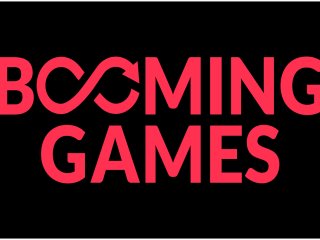
Isle of Man Jurisdiction Review
By Casinomeister Mar 26, 2024
Casinomeister's Verdict
The Isle of Man Gambling Supervision Commission is generally regarded as one of the more-trustworthy regulators, with a history of taking swift action against rogue, unethical gaming operators.
As such, The Isle of Man licensing jurisdiction is one of the most underrated jurisdictions out there. They are pretty solid – in fact I can’t think of any casino that has been rogued in our rogue pit that was licensed by the Isle of Man.
They don’t deal directly with player issues, nonetheless – their casinos are a safe bet.

Rarely a complaint - solid licensing
 Pros
Pros
Proactive regulator who are unafraid of taking action against rogue operators
Impose strict conditions on licensees, particularly surrounding underage and responsible gambling
Have “ensuring that players receive their winnings” as part of their three core upholds
 Cons
Cons
Don’t offer the same lucrative business and tax rates as other jurisdictions
Can be slow to respond to individual player complaints
Isle of Man Gambling Supervision Commission
No man is an island…
But the Isle of man is different. The Isle of Man is one of the most popular destinations for online gambling companies to set up shop, and many of the world’s largest operators can be found based on the island – with some of the main reasons including lucrative tax rates, low business rates, and a relatively straightforward path to acquiring a gaming license.

The regulator in charge of online gambling in the Isle of Man is known as the Gambling Supervision Commission, and, along with the UK’s Gambling Commission and Maltas Gaming Authority, the Commission is generally regarded as one of the more-trustworthy regulators, with them unafraid to take action against rogue, unethical gaming operators.
About The Isle Of Man’s Gambling Supervision Commission
The Gambling Supervision Commission is one of the world’s oldest gambling regulators, first formed way back in 1962, and while it was originally formed to regulate land-based casinos, it’s power was soon extended to the online world in the late 90’s, when online gambling became a “thing”.
The Commission is known for being strict, in terms of who they distribute licenses to, and unlike regulators like Curacao, the Commission are unafraid of taking action against operators acting unlawfully, with both financial sanctions and cancelling of licenses used against rogue casinos.
The Commission is also independent from Government bodies, and they’re generally seen as approachable, for both players, and operators, making them a trusted name in the gambling regulation space.
“The Commission was established in 1962 to protect the interests of gamblers in the Island by ensuring that gambling remains fair and crime-free and that players receive their winnings. It gained worldwide notice with the advent of online gambling in the early 21st Century due to the Isle’s reputation as a tax-friendly jurisdiction. It was one of the first jurisdictions to offer legislation to regulate the activity of e-gaming companies and create a secure atmosphere for the gamblers. One of the main documents underpinning the activity of the Commission is the Online Gambling Regulation Act 2001 (OGRA).”
Isle of Man Gambling Supervision Commission issued its first license for live dealer games in 2009 to Celton Manx – and since then they’ve shown that they’re happy to adapt to the ever-changing world of online gambling.
Funds Protected
The Isle of Man Gambling Supervision Commission places a strong emphasis on the protection of player’s funds – and below we’ll show you an extract from the Isle of Man Gambling Supervision Commission’s website showing you just how serious they are about protecting players funds – all backed by fair gambling legislation that all online gambling operators are expected to follow:
“On the Isle of Man we make sure that all licensee’s have a system in place which fully protects all player funds. This means that any deposits or winnings you have with an island regulated gaming firm are secure and can be enforced by law.
Consumer Protection is important to the Commission. Players who gamble with operators licensed by the Isle of Man benefit from a number of protections. One of these is the way players’ money is protected. In order for an operator to obtain a license in the Isle of Man, it must agree to protect players’ money. Players’ money is classed as deposits plus winnings plus any bonuses that have been earned. Players’ money must be protected by a mechanism approved by the Commission. Currently, four mechanisms are approved.
The first mechanism is a bank guarantee. A bank guarantee is agreed between a bank and the operator. If the operator cannot pay its players then the bank does so. Licensees ensure that their bank guarantees can cover the value of player funds to be protected.
The second mechanism is a trust fund. A trust is an arrangement defined in a legal document – a trust deed – which controls how money enters and is paid out from a bank account held by the trust. If the operator cannot pay its players then the trust deed allows money to be taken from the trust and paid to players. The trust deed does not allow money to be taken from the fund for other purposes such as paying for rent or advertising costs. The trustees – the people responsible for administering the trust – may pay themselves a small administrative fee from the trust and may move money out of the trust that is in excess of the players’ funds.
The third mechanism is a Client Account. The Client Account is a bank account that is held with a bank that meets the Treasury Department’s approval criterion:
Regulation 3(1) of the Online Gambling (Participants Money) (Amendment) Regulations 2014 requires the Treasury to specify additional criteria to define an “overseas deposit-taking institution”.
Within the context of the Regulations, Treasury accepts that all banks that are regulated by a financial authority, other than the Isle of Man Financial Supervision Commission, in third countries and territories where the jurisdiction is in good standing with FATF and BASEL regulatory standards, shall be considered acceptable as an “overseas deposit-taking institution”.
Under the law, any money that is held in the Client Account is considered to belong to players. This means that if the operator cannot pay the players and the bank has been told that the operator is in difficulties by the Commission then the bank will only allow money to be paid to players from that point onwards. An operator who is not in difficulties and who has money in a Client Account in excess of players’ funds may move the surplus money out of the account.
The Commission undertakes quarterly checks to ensure that the value of the money held in these mechanisms matches the value of player deposits. It also conducts random checks to detect any shortfalls.
The fourth mechanism is an insurance-based solution which provides for a sum to be paid to the operator in the event of a default situation, that sum being at least equal to the sum of funds owed to players. Each such solution must be approved by the Commission before it can be used as a protection mechanism. This mechanism can be combined with other fund protection mechanisms provided the sum total of protection at any given time is equal to those funds owed to players.
The Commission also requires that if its operators suspend or cease operations, all players are contacted and their money is returned.
These mechanisms are not just theoretical; they have been tested a number of times and the Commission has never received a complaint from a player who could not obtain their money.”
Provisions Of a License
The first step in acquiring a license from the Gambling Supervision Commission is for an operator to request an application form. Once the form is completed, the process is relatively fast, with the Commission reaching a decision – generally – in 2 months or less… although operators can expect to pay a significant amount of money for the privilege of a license, with the license itself costing £35,000 each year, and a 1.5% tax on all net profits, up to a maximum of £20,000,000 per year!
As with most regulators, operators wanting a license must prove that their business meets a number of license conditions, including responsible gambling measures, anti-money-laundering procedures, and player-fund protection protocols, all of which are regularly checked and audited by the Commission.
Like the United Kingdom Gambling Commission, the Gambling Supervision Commission requires casinos to protect player funds in the event of insolvency; this basically means that money you deposit is held in a seperate account from that of the company, so that – in the event of insolvency – you would stand a far-greater chance of getting your money back.
Disputes and Player Complaints
Another condition of acquiring a license from the Commission is that casinos must work alongside an IBAS (Independent Betting Adjudication Service), and this is your first port of call if you have a complaint to make against an operator.
If you follow the IBAS procedure and are still unhappy with the result, you have the option to make an official complaint to the Commission, although, as with most regulators, whether your case will be reviewed or not largely depends on the severity of the claims you’re making, and the nature of the problem.
In fairness to the Commission, however, they have a pretty good track record with looking after players and taking their concerns and complaints seriously – and this is a breath of fresh air in an industry overrun with regulators who seem incapable of taking action against rogue license holders.
The Isle of Man Gambling Supervision Commission also has quite a helpful FAQ section on their website that aims to address some of the most common questions that players have. For example, if you see a gambling advertisement you feel is unethical or against the law, you’re advised to report the advert directly to the ASA instead of the Isle of Man Gambling Supervision Commission. They also recommend that you take any complaints to IBAS instead of contacting the Isle of Man Gambling Supervision Commission – although they will be happy to hear complaints. However, they do state:
“The Commission will offer guidance and recommendations, but has no power to order an operator to return stakes which have been freely placed and have been deemed to have been fairly lost. Deposits that have not been wagered and actual winnings, are legally enforceable however.”
FAQs
What is the Isle of Man Gambling Supervision Commission’s watch list?
At the bottom of the Isle of Man Gambling Supervision Commission’s website you’ll notice there’s something called a ‘watch list’. In recent years, a number of sites (usually rogue casinos operating without any online gambling license at all) claim to hold an online gambling license from the Isle of Man Gambling Supervision Commission, when in reality they don’t – and the Isle of Man Gambling Supervision Commission adds all of the known sites fraudulently claiming this to their watchlist.
You can browse through this list to see which online gambling operators are claiming to hold a license when they don’t – and you can view the website’s URL along with the date that the site was added to the list.
What online gambling activities does the Isle of Man Gambling Supervision Commission regulate?
The Isle of Man Gambling Supervision Commission, under the online gambling regulation act, is responsible for regulating all forms of online gambling that take place from the Isle of Man. This includes many different online gambling companies, from poker sites and bingo halls to online casinos and more.
The gambling industry is an ever-changing beast, and to be fair to them, the Isle of Man Gambling Supervision Commission has done a pretty good job of keeping up with chances in the online gambling industry. This means that new types of games (for example, live dealer games), are quickly on the radar of the Isle of Man Gambling Supervision Commission – and this means players have strong levels of protection as shady operators don’t have time to try and take advantage of players.
Where can I find gambling sites that hold a Isle of Man Gambling Supervision Commission license?
One of the biggest problems facing new gamblers (and even those who have experience within the industry) is actually finding safe online casinos that come highly-recommended. That’s where we come in here at Casinomeister – and our team of online gambling experts works round-the-clock to bring you the best online casinos, all of which have been hand-picked and verified by our team of experts.
If you scroll up to the top of this page you’ll find a list of the top Isle of Man Gambling Supervision Commission-licensed casinos along with a quick breakdown of the bonuses and promotions that are available to you. If you see a casino you like the look of, just hit the ‘play now’ button and you’ll be taken directly to the casino’s website.
What happens if an online gambling site doesn’t respond to my complaint?
It’s somewhat confusing; first, the Isle of Man Gambling Supervision Commission says this: “If you are dissatisfied with the way a licensee has dealt with your complaint, you can report to the Commission about their failure to operate a suitable complaints process.”
However, they also go on to say this: “The Commission will offer guidance and recommendations, but has no power to order an operator to return stakes which have been freely placed and have been deemed to have been fairly lost. Deposits that have not been wagered and actual winnings, are legally enforceable however.”
So, it’s likely that if you do run into problems you can make an official complaint to the Isle of Man Gambling Supervision Commission – but it’s unsure whether they will actually be able to get a company to pay you out if you’re owed winnings.
What does independent testing mean?
Any online gaming operator that holds a valid gaming license from the Isle of Man Gambling Supervision Commission is required to ensure that all of the casino games and they offer (including video slots, live dealer games, casino table games, scratch card games, instant win games and more) have been independently tested and certified by a third-party testing house. These testing houses MUST be approved by the Isle of Man Gambling Supervision Commission – and these tests are designed to ensure that all games on offer are random and truly fair.
What does the Isle of Man Gambling Supervision Commission mean when it says that it conducts ‘ongoing reviews’?
On the Isle of Man Gambling Supervision Commission’s website they state that they conduct regular ‘ongoing reviews’ of their licensees. This simply means that they continually check to make sure that their licensees are adhering to the terms and conditions of their license – and if the Isle of Man Gambling Supervision Commission finds that a site is not, they are not afraid to take immediate action, including suspending licenses and even bringing criminal proceedings!



 Top 5 casinos
Top 5 casinos 



















